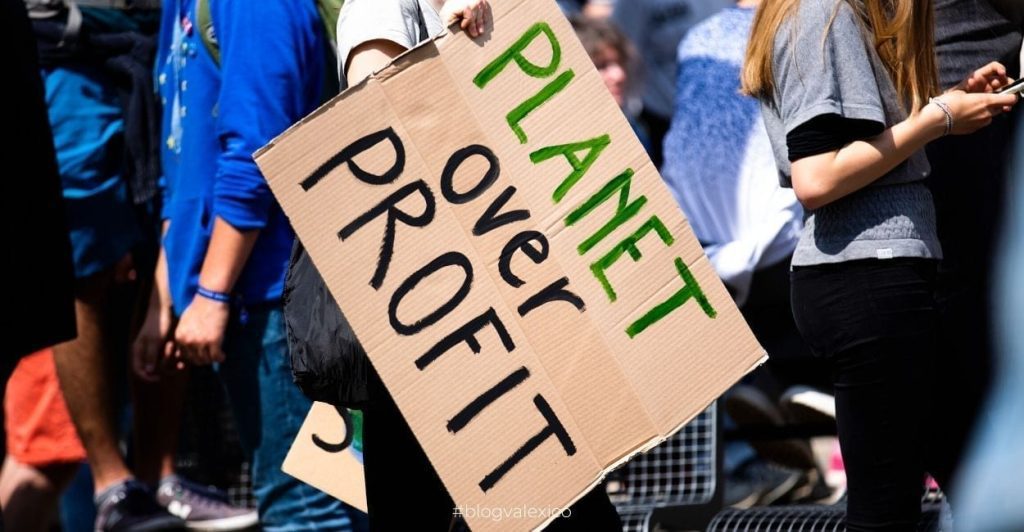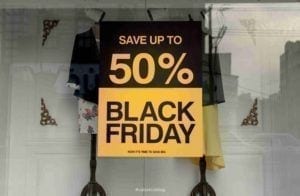
Which came first, the chicken or the egg? I don’t pretend to start a philosophical debate, far from it, but that’s the question I had in my mind while watching the documentary “A Plastic Ocean”. As I watched the documentary, I could not help but feel a deep sadness that despite much effort, the oceans are still clogged with plastic and garbage. The only thing I saw worse than that, was the quality of life of the people living in places like Manila, Philippines, or Tuvalu who literally live among the trash. Haven’t we realized that being an ethical consumer is not only for the well being of the planet, but for all its people?
When I finished watching “A plastic Ocean”, something took a hold of me and I felt the need to look for more documentaries; not only about plastic, but about other topics that come to mind when I think about how and why we should be responsible consumers. This search took me to several unexpected places and to spend the whole weekend watching TV, making notes and feeling that I am not doing enough to save the planet and help its people, animals and plants.
An ethical consumer
Both in social media, and in Valexico’s blog, I have been quite open about responsible consumption. During the years that I’ve been doing my part to help the planet, I’ve realized that the responsibility for the waste that is generated, the lack of adequate working conditions and global warming in general are not only the responsibility of large companies and industries, but they are also the responsibility of us as consumers.
It’s true that the industrialisation of processes and a globalised world has been of great benefit to humanity, but today I believe that these benefits are no longer thought of; I believe that large companies, and industries, have become too greedy to generate more and earn more regardless of the impact and consequences this has. For years we thought buying products and acquiring services that will help us simplify our lives was a better way to live: having the same thing but cheaper and immediately.
A culture was created around fast food, fast fashion and a voracious consumerism that when we realized it we were already immersed in a tide of plastics, waste, consumerism and problems of obesity and malnutrition.
It’s not them, it’s us

Not knowing what to do about these problems, we turned to governments and companies looking for someone to blame, when in fact we should’ve been looking at ourselves. But before we had to think about it, “green” products started to emerge and claimed to be made from recycled or recyclable materials and that helped the environment. And that’s how the craze for green, sustainable and environmentally friendly products began; companies entered the game of Greenwashing (I recommend you read this article on the subject “Greenwashing: how companies make us believe they are sustainable“) and we believed them, thinking that this was the solution. And it wasn’t, because despite buying “green” products our way of consuming remained the same, only now with less guilt.
Fortunately I think we’ve started to open our eyes. We started to realize that not everything that claims to be green really is, that fast fashion not only damages the environment but is made under deplorable working conditions and that the agendas of politicians and companies will never change in favor of the consumer or the environment. We realized that the greatest power is ours; we are the ones that choose what, how and from whom to buy, now we just have to become aware of it and make it part of this new way of life.
The first 6 documentaries
Are you still with me, or did I leave you a little dazed? So that you don’t take my word for it and believe me just because I have a blog, I started looking for information and luckily I found it in the format of documentaries. I had to be a bit selective and went for the ones I was most interested in (for now) and leave the rest for later. So, without further ado, I leave you with the list of the 6 documentaries that at least made me think twice about how I consume and how I should consume from now on.
Be careful, it is very important that if there is information within the documentaries that you are interested in, you dedicate a little more time to learn more about the topic. Some of these documentaries are not so recent, so there may be facts or figures that have changed. A well informed consumer is a responsible consumer.
1.- A Plastic Ocean (2016) Netflix.
I love to go into the sea or the pool, but I’m really disgusted when there is floating waste that can go from insects, dry leaves or literally garbage. I had this feeling while watching the first minutes of the documentary: an image in which you see a layer of plastic with oil covering the surface of the ocean. I was left cold just thinking that this is where thousands of ocean species live, most of which confuse plastic with food.
This is the main story told by Craig Lesson and Tanya Streeter. They show us how the amount of plastic is so great in the oceans that it has been brought ashore until it has become part of entire communities that live among garbage and that thousands of animals die because they eat so much plastic that they literally die with a full stomach. It’s a documentarie that certainly gives us an insight into how we consume plastic, its impact on the environment and our health.
2.- Made in Bangladesh (2014) Youtube.
More than a documentary, it’s a news coverage about the working conditions in Bangladesh after the collapse of Rana Plaza in 2013. The story, filmed by a Canadian television channel, follows and investigates the brand Joe Fresh and how they tried to disassociate themselves from their responsibility after the collapse.
Made in Bangladesh is an unfiltered look at the inhumane conditions in which people work for the textile industry; plus the fact that companies still choose to produce in these countries because they can pay workers wages as low as 24¢ an hour and workers still accept this because “working for almost nothing is better than working for nothing”.
3.- The Price of Fast Fashion (2019) Youtube.
This is also a news coverage, but it was made by the BBC and unlike Made in Bangaldesh which shows us the negative impact of fast fashion for society; this one shows us the negative impact but for the environment. Assefeh Barrat takes us through fashion shows, designer brands and even a cotton farm in the United States to see the great impact that fast fashion has on the environment.
I find it quite interesting to see how the impact is not only on the environment, but also on those designers who decide to use sustainable materials. The funniest thing? A couple of fashionistas are interviewed and they clearly have no idea about sustainable fashion and are part of the great fiasco that is greenwashing and posing.
4.- Cowspiracy (2014) Netflix.
I must confess that this is the one that I was most skeptical about; no one is going to tell me that I shouldn’t eat meat … oh how wrong I was. Today I consider myself neither a vegetarian nor a carnivore, but my diet has changed and is a healthy mix between the two but having lowered my consumption of red meat significantly. But watching this documentary I was amazed. It’s true that there is a lot of political and agrobusiness lobbying, so some issues left me with a half-bitter taste.
Is it real that it’s more important for companies not to talk about the effects that the industry has on climate change in order to continue selling and exploiting resources? Not to mention the conditions under which animals are kept on mass-production farms (I think that’s a good way of putting it). This documentary has left me with a lot to think about, and above all, one that will require even greater change if I really want to help the environment. WARNING: It may contain images that some people may find disturbing.
5.- Soyalism (2018) Youtube & Amazon Prime.
If Cowspiracy moved me, this one knocked me down. I can’t explain the feeling of anger and helplessness that I got after watching this piece. Like the previous one, it focuses on the impact that agroindustry has on the environment, but also on society. I am not going to go into detail about the countries or companies that are doing this, because I think the focus should be on how they are doing it no matter who they are. The need to produce meat to feed certain social classes, has led to the creation of practically automated farms that go from the reproduction of the animals to their slaughter.
This massive way of generating meat has grown in such a way that areas of the Amazon rainforest are being deforested to create soybean farms to feed these animals. These soybean farms and breeding farms have displaced local producers and farmers, depriving them of their source of income; in addition, they use pesticides that, if they harm the environment, I don’t even want to think about the consequences for our health.
6.- How to change the world. (2015) Netflix.
I’ll be very honest, I’ve never been a big fan of Greenpeace; I know they are an organization that has done and does a lot for the planet, but there has always been something that didn’t quite fit, it felt very political to say the least. This documentary changed my perspective completely. The story told from the perspective of founder Bob Hunter shows us the ups and downs that the organization had in its early days; something that started as a small adventure in a boat to save the whales, became an international organization fighting for a common purpose.
The story of Greenpeace is one that can be taken as an example, of how an individual, along with a couple of friends, managed to mobilize and unite the entire world without much idea of how to do it and with just a camera. While the problems of organization, power and fame may be present, what the Greenpeace guys have left as a legacy is what has inspired thousands more to raise their voices, take to the streets and make a difference... no matter what the cause.
Hats off to Bob Hunter and his ideals; to an organization that shows us that actions speak louder than words. WARNING! It may contain images that some people may find disturbing.

It’s on you, on me, on us
If after watching these documentaries, you were shocked … don’t worry, you weren’t the only one and the good news is that we still have (some) time to change. I don’t pretend that after today you throw away everything you own (because it would generate more waste) and become a vegan; but I would like to invite you to consider how you can be a responsible consumer and take care of your part as a citizen of the world.
My philosophy has never been to tell people not to consume, but to consume differently. I’m not saying don’t buy a pair of sandals for the summer, I’m saying choose a brand that is local, uses sustainable materials and pays its workers fairly. I’m saying that instead of buying the bag of carrots in the supermarket, go to the market and buy them in bulk from a local producer; and so on and so forth.
We should also think about what generates less waste, try to take reusable packaging with you when you go shopping or if you know you are going to a restaurant to get takeaway food. And if this isn’t possible, separate your waste correctly; let’s not leave this responsibility also in the hands of the government and companies.
I’m glad to see that more and more of us are making small changes, but we have to seriously make them and turn them into our way of life. Don’t be stressed if one day you forget your reusable shopping bag or didn’t reuse a container; reaching 100% is difficult, but keep in mind that every small action is a drop that joins the great ocean of actions.
If you’ve already seen any of these documentaries, have a recommendation or simply want to share your ideas, I will read you in the comments.
Photo by Markus Spiske on Unsplash

Mariana Báez – Camargo
One day I woke up wanting something different so Istarted a business, then a blog and today an online store. I try to live a sustainable life and one where I can help others. The day I run out of ideas, I know that everything has gone to shit.




Awesome article.
Thank you, we are glad you enjoyed it!